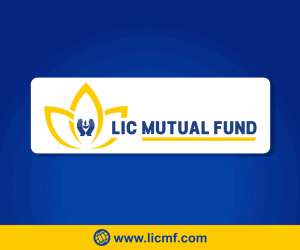Have you planned your Taxes for this Financial Year

I know tax planning is a boring and time consuming exercise that we need to do every year. Though, I cannot help you avoid it but certainly can help with all the information that you need to plan your taxes and thus save money.
First, Let us know the Income Tax slabs for FY 2012-13

Now, Let us know how Personal Tax scenarios have changed from last financial Year?

Now, how much Tax you can save from various Investments?
One can claim his investments/payments under section 80C, 80CCC and 80CCD, up to Rs. 100,000 (Rupees One Lac only) combined limit - Amount can be invested in:
- Life insurance/Unit Linked Insurance Plan (ULIP) premiums
- Public provident fund (PPF)
- National Savings Certificate (NSC) or National Service Scheme (NSS) or Post Office Tax Saving Deposits
- Accrued Interest of NSC VIII Issue
- Investment in Rural Development Bonds of NABARD
- Five year Tax Saving Bank Fixed Deposits (For 5 years or more)
- Investments in Mutual Funds Tax Saving Schemes (ELSS)
- Employee Provident Fund (EPF) - Employee’s Contribution only
- New Pension Scheme (NPS) - To the extent of 10% of your salary by the Employer or Central Government will be eligible for additional tax benefit over & above the Rs. 1.00 Lac limit u/s 80C
- Home Loan – only Principal amount paid (If you have got possession of the property)
- Senior Citizen Savings Scheme 2004, if you are more than 60 years of age
- Pension Scheme or Retirement plans under section 80CCC
- Tuition Fees (excluding donations/ development fees) paid for Children (Max 2 Children only) for full time education in school/ colleges in India only.
- The amount you pay as stamp duty when you buy a house and also the amount you pay for the registration of the documents of the house can be claimed as deduction under section 80C. However, this can be done only in the year of purchase of the house.
You can save Taxes further from following
Deduction of upto 10,000 for interest from Savings Bank Account under a new section 80TTA
- Maximum deduction of up to 15,000 under Mediclaim/ health insurance taken for self and family. An additional deduction of up to 15,000 for buying cover for dependent parents. If parents/assesses are senior citizens, can claim deduction up to Rs 20,000 (Under Section 80D)
- The maximum limit is of 1.5 lacs on interest payments of a home loan for a self-occupied residential property. However, there is no ceiling on the amount of deduction if the house is let out or deemed to be let out. In this case, house rent would need to be shown in as income in case house is not self-occupied or it’s a second property (under Section 24(b)/Home loan interest payment)
- Donations made to Religious or charitable Trusts is allowed @ 25/50/75/100% (of the contribution amount) depending upon the charity and approval (under Section 80G)
- Tax relief on interest payments on education loan taken for higher studies for self, spouse or child. There is no maximum limit on this deduction, but should be from a school/ institute /university recognized by the government (Section 80E)
- Deduction of 50,000 for maintenance of a disabled dependent. If the disability is severe, the deduction amount will be 100,000 (Under Section 80DD)
- Deduction can be claimed if person has a disability. The allowed deduction is Rs 50,000. This deduction goes up to Rs. 75,000 in case disability is severe (section 80U Disabled/ Handicapped person).
- Deduction of upto Rs. 5,000 is allowed for preventive health check-up of dependent senior citizens.
- Expenses incurred for medical treatment for self, spouse, dependent children, parents, brothers and sisters. Maximum deduction is Rs 40,000 (Can go up to 60,000 in case patient is senior citizen). Deduction is allowed only in case of specified diseases or ailments such as, AIDs, Malignant Cancer, Chronic Renal failure, Thalessaemia, Dementia, Parkinson’s disease, etc. (Section 80DDB)
Rajiv Gandhi Equity Savings scheme (RGESS): New retail investors with annual income of Rs 10 lakh and below are eligible to claim a deduction of 50% on a maximum investment of Rs 50,000/- - Applicable for those who first time invest into equities, Exchange-traded funds (ETFs) and Close Ended mutual funds listed on stock exchange and invested only in BSE 100, CNX 100 and blue chip public sector stocks. Shares of PSU firms categorised as Maharatna, Navratna or Miniratna by the central government will be eligible for RGESS. Follow on public offers and IPOs of PSUs will also be eligible (Under sub-section (1) of Section 80CCG of Income Tax Act 1961) – Exact notification and launch of this scheme is expected shortly.
Few useful links in context to your IT planning/ filling returns
- Know your exact tax amount http://law.incometaxindia.gov.in/DIT/Xtras/taxcalc.aspx
- Check your Employees Provident Find (EPF) Balance http://www.epfindia.com/
- Check your previous Tax refunds (if any) https://tin.tin.nsdl.com/oltas/refundstatuslogin.html
- To Find a TAX RETURN PREPARER (TRP) http://www.trpscheme.com/trp/index.jsp
- View your Tax credits / TDS from your bank thru net banking facility http://www.incometaxindia.gov.in/OnlineInternetBanking.asp
- To know more about Income Tax http://www.incometaxindia.gov.in/home.asp#
Hope, the above comes handy in planning, Saving/Investing and filing your Taxes!
Disclaimers
- The tax rates mentioned above are those provided in the Income tax Act, 1961, applicable for the financial year 2012-13 relevant to assessment year 2013-14. In the event of any change, we do not assume any responsibility to update the tax rates consequent to such changes.
- The tax rates mentioned above are only intended to provide general information and are neither designed nor intended to be a substitute for professional tax advice. Applicability of the tax rates would depend upon nature of the transaction, the tax consequences thereon and the tax laws in force at the relevant point in time. Therefore, users are advised that before making any decision or taking any action that might affect their finances or business, they should take professional advice.
- A non-resident tax payer has an option to be governed by the provisions of the Income tax Act, 1961or the provisions of the relevant Double Taxation Avoidance Agreement, whichever is more beneficial. As per the Finance Act, 2012, submission of tax residency certificate containing prescribed particulars, will be a necessary (though not sufficient) condition for granting benefits under the Double Taxation Avoidance Agreements to non-residents.
This article was also published in "Chatterpiller", the newsletter of Carma Connect https://carmaconnect.in/newsletters/2012/12/15/finger-food-6/



